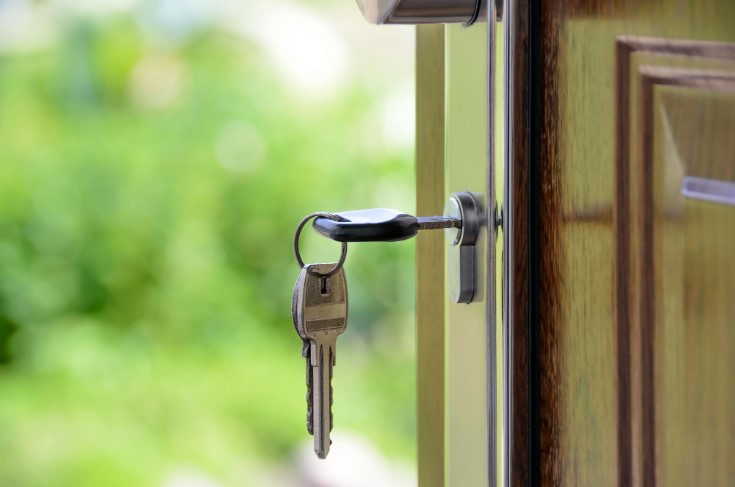Ensuring security in a rental property is a non-negotiable priority for every tenant. The quest for effective safety measures, balanced with the need to adhere to the restrictions of lease agreements, presents a unique challenge for renters. Despite these constraints, a proactive and informed approach enables tenants to significantly improve their home's security without breaching contractual obligations or incurring hefty expenses.
Understand your lease agreement
The journey to a secure rental begins with a thorough analysis of your lease agreement. This document often contains clauses that limit certain modifications, such as installing complex security systems or making permanent alterations like drilling holes in walls. A clear understanding of these limitations is crucial for selecting security enhancements that do not endanger your lease. For any changes that might affect the rental's structure, including the addition of extra locks, obtaining written permission from your landlord is a critical first step.
Reinforce doors and windows
Fortifying the primary points of entry — doors and windows — is fundamental to enhancing your rental's security. According to a survey by Compare the Market Home and Contents, the most common security measure for Australians, Canadians, and Americans is deadbolt locks. Engaging with your landlord about the possibility of installing deadbolt locks can be a fruitful endeavor, as these locks are among the most effective deterrents for intruders. For those with sliding doors, employing a simple yet efficient strategy like placing a sturdy wooden dowel or a metal bar in the sliding track can prevent unwanted external access.
Smart home security systems
The advent of smart home security technology offers renters an array of options to safeguard their dwellings. Wireless, DIY-friendly options are available for surveillance cameras, motion detectors, and door/window alarms, without risking damage to the property. These systems, which are easily removable, provide the added advantage of being transportable, allowing you to take them with you when you move. Many smart security solutions offer remote control through mobile applications, affording renters peace of mind and comprehensive control over their property's security. Additionally, employing smart lighting solutions can further deter potential burglars, making your rental less attractive to them.
Get to know your neighbors
Creating and nurturing relationships with your neighbors is a powerful strategy for enhancing the security of your neighborhood. Sharing contact information and keeping each other informed about any unusual activities or concerns can cultivate a vigilant and supportive community. Participation in existing neighborhood watch programs—or taking the initiative to start one—can amplify the collective security effort, making the area less appealing to criminals.
Secure valuables
The visibility of valuable possessions, such as electronics and jewelry, can make your rental a target for burglaries, and according to the Masters Locksmiths Association, 37 percent of people leave their portable gadgets on show. Investing in a safe or a lockbox to secure important documents and valuable items, while keeping them out of direct view from windows and doors, is a wise move. If a secure storage option is not available, creatively hiding valuables in unexpected places can reduce the risk of them being stolen during a break-in.
Key management
Managing access to your rental is a critical aspect of security. Spare keys, while convenient, should be handled with caution to avoid falling into the wrong hands. Opting to entrust a spare key with a trustworthy neighbor or friend can provide a safer alternative to hiding it outdoors. For an even more secure solution, consider installing a keyless entry system, if permitted by your lease agreement, eliminating the risk associated with physical keys.
Complete regular maintenance
Keeping the exterior of your property well-maintained is an effective deterrent against potential intruders. Regularly trimming bushes and trees near windows can remove potential hiding spots, while ensuring that locks and security systems are in working order reinforces the property's defenses. A property that appears cared for and monitored is less likely to attract criminal attention.
Emergency preparedness
Being prepared for emergencies, including break-ins or natural disasters, is essential. Familiarize yourself with the best routes for emergency egress, designate a safe meeting point for household members, and maintain a list of emergency contacts in an accessible location. An emergency kit stocked with essential supplies, such as first-aid items, non-perishable food, and water, should be kept ready. Regularly discussing and updating your emergency plan with all members of the household ensures everyone knows what to do in case of an emergency.
Doubling down on security measures in a rental property requires a blend of technology, community engagement, and strategic planning. While the path to securing a rental may seem more complex than that for a owned home, the combination of innovative security technologies, robust community networks, and sensible safety practices can greatly enhance the security and peace of mind for renters. Adopting a proactive stance and implementing these measures thoughtfully can help ensure your rental is a safe haven, all within the bounds of your lease agreement.










